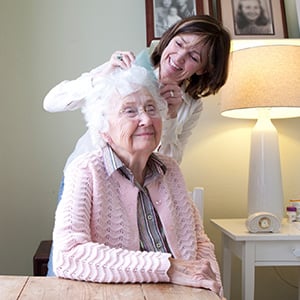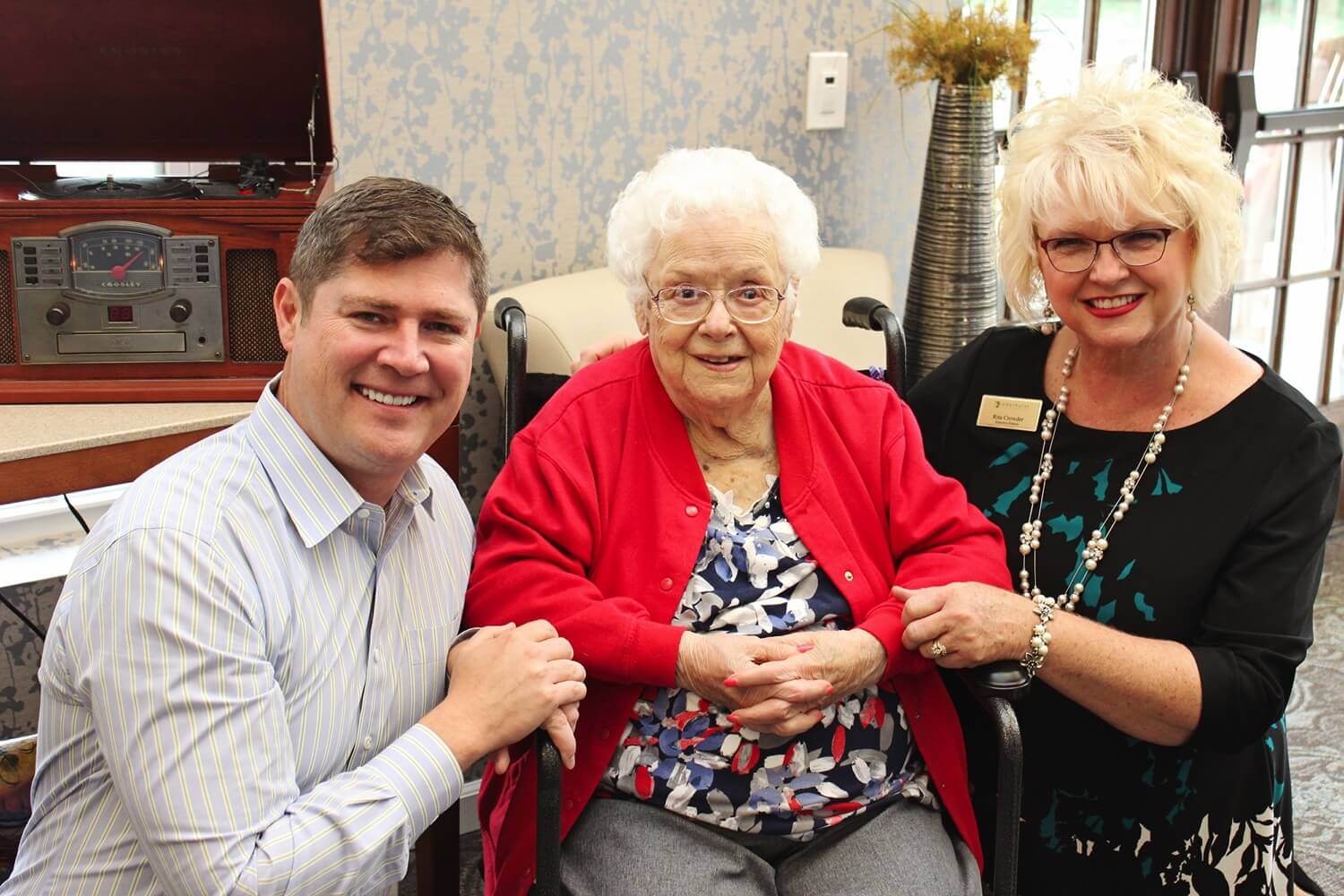Evaluating Level of Care Assistance
Activities of daily living (ADLs) and instrumental activities of daily living (IADLs) describe the fundamental skills required for a person to independently care for themselves on a day-to-day basis. ADLs and IADLs are essential indicators in determining the amount of supplemental care and services your senior loved one may need.
Use the assessment below and check the level of function for your loved one as it relates to each activity.

ADLs
ADLs are the basic activities your loved one engages in each day. This includes personal care activities such as:
- Grooming
- Toileting
- Personal hygiene
- Eating
IADLs
IADLs consist of more complex activities such as:
- Preparing meals
- Laundry
- Managing finances and medications
- Housekeeping tasks
Recognizing a person’s areas of need is the first step in developing a care plan (or making a referral for care) to provide the appropriate type and level of assistance. Learning how well your loved one is managing ADLs and IADLs will help determine if they are capable of staying in their current residence, if they need in-home assistance with specific tasks, or if they need more regular hands-on care like that provided in a senior living community.
If your loved one requires daily assistance with ADLs or IADLs, they may also be eligible for federal or state assistance programs. To be eligible for Medicaid, a functional or medical need must be demonstrated, which is done through evaluating ADLs and IADLs. Veterans Affairs also takes functional and medical needs into account for the eligibility of benefits such as the Aid and Attendance allowance.


How to take the assessment
To take the ADL and IADL assessment below, consider the day-to-day personal functions listed in the “ADL/IADL Functions” (e.g., Bathing, Eating, and so on). Rank how your loved one performs each function based on the following senior assistance levels:

Can Do on Their Own
Need Some Help from Others
Needs a Lot of Help from Others
Unable to Do on Their Own

For each ADL/IADL Function row, select the option that matches your loved one’s ability to perform the function.
For example, if your loved one can bathe on their own with no assistance, you would select “can do on their own." Select an option in each row to ensure you receive an accurate score.

If your loved one can’t perform many functions on their own and is experiencing problems with memory, speak with their physician to discuss the changes you’re noticing and if it may be Alzheimer’s disease or dementia.
Memory care communities are created specifically to care for individuals living with Alzheimer’s disease or dementia. They offer a structured, personalized environment that provides the level of care assistance required by each person. These communities provide additional safety measures beyond other types of senior living lifestyles to keep residents safe and help their family members feel at ease about their welfare.
Each memory care community sticks to residents’ routines to minimize their stress and help them have the best day possible each day. Residents receive around-the-clock care assistance with daily tasks, and these communities support memory and cognition through engaging programming and activities.
Please be advised that while this assessment is a great place to start, it's for illustrative purposes only. Before a lease is signed, a medical professional will complete a formal assessment, which will determine your loved one's care level.
Assisted living communities provide care personalized to each resident and their unique needs. These communities are designed to help individuals who require varying levels of care assistance based on ADLs and IADLs.
Assisted living offers different levels of senior assistance, ranging from minimal levels of supportive care (to ensure healthy habits are maintained) to attentive, supervisory, and comprehensive care. Each resident receives the amount of assistance required to meet their medical and personal needs while they enjoy various on-site amenities and live life to its fullest.
Please be advised that while this assessment is a great place to start, it's for illustrative purposes only. Before a lease is signed, a medical professional will complete a formal assessment, which will determine your loved one's care level.
Independent living is perfect for individuals who don’t require active levels of senior assistance. It’s a lifestyle option for seniors who are capable of managing their daily care activities, such as taking medications as directed and maintaining personal hygiene, but want to enjoy a low-maintenance lifestyle.
Independent living communities often provide grounds maintenance, housekeeping services, and more. These services enable residents to pursue their passions while eliminating the time-consuming burden of household chores.
Please be advised that while this assessment is a great place to start, it's for illustrative purposes only. Before a lease is signed, a medical professional will complete a formal assessment, which will determine your loved one's care level.
Why Cedarhurst?
Key difference benefit donec ullamcorper nulla non metus auctor fringilla malesuada sed
Key difference benefit donec ullamcorper nulla non metus auctor fringilla malesuada sed
Key difference benefit donec ullamcorper nulla non metus auctor fringilla malesuada sed
Key difference benefit donec ullamcorper nulla non metus auctor fringilla malesuada sed
Key difference benefit donec ullamcorper nulla non metus auctor fringilla malesuada sed
Key difference benefit donec ullamcorper nulla non metus auctor fringilla malesuada sed
What Comes Next?
The process of considering what comes next and choosing the right senior living community for your loved one can be a challenge, but Cedarhurst is here when and where you need us. Whether you need assistance in determining the appropriate level of care for your loved one, obtaining a comprehensive care assessment by a professional, or other specific inquiries, we’re here to help.
To learn more about your senior loved one’s options, contact us today.

